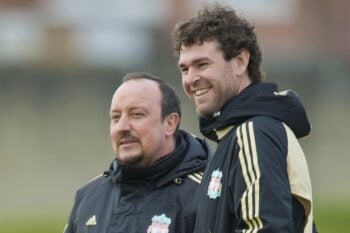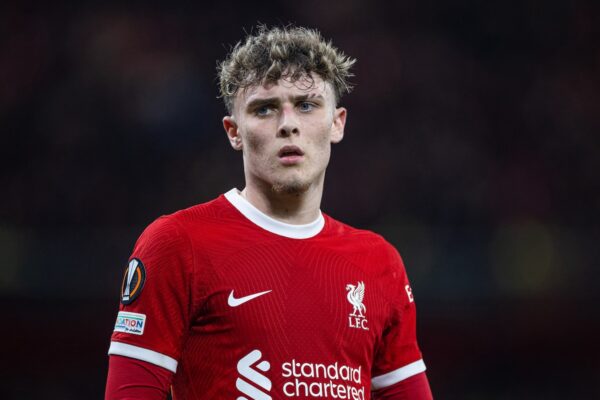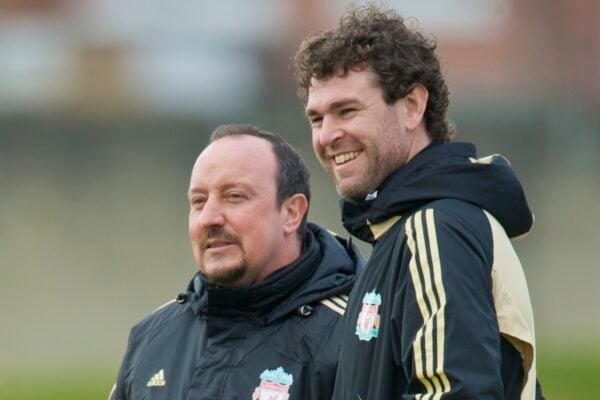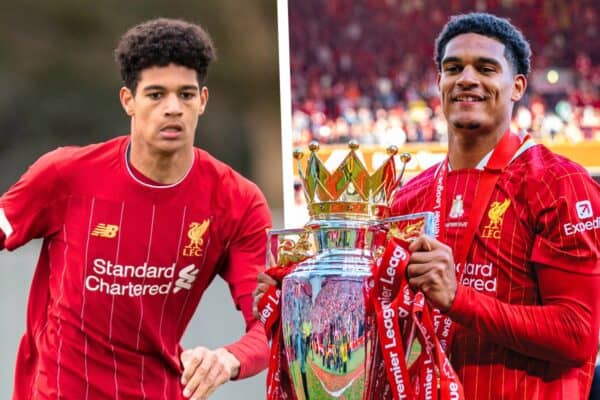What defines a successful career? Is Luis Suarez being sincere in his comments? Are we better off without a ‘superstar’ – ala Dortmund? Marco Lopes discusses the Suarez saga.

Ask most football fans about loyalty nowadays and the answer takes on various shades of resentment depending on who they support. Liverpool fans have the rare luxury of celebrating the service of Steven Gerrard and Jamie Carragher as one-club loyal men, especially considering the former was not far from a switch to Chelsea some years back. The Mancs have several examples in recent years like Giggs, Scholes and Gary Neville, although their loyalty has hardly been tested by lean periods of trophy droughts as with Liverpool. There are countless examples that are revered throughout football; Iker Casillas (Real Madrid), Paolo Maldini (Milan), Francesco Totti (Roma), Alessandro Del Piero (Juventus), Javier Zanetti (Inter), Carles Puyol and Xavi Hernandez (Barcelona) – many more current and past examples could be named.
Then of course, come the “traitors”. The players who not only leave clubs despite promises of commitment, loyalty or – my personal favourite – an appreciation of the fans, but test the patience of the fans they leave behind by leaving in acrimonious circumstances.
There are many in recent memory in England, never mind across Europe; Carlos Tevez from Man United to City, Eric Cantona from Leeds to Man United, Ashley Cole from Arsenal to Chelsea, Sol Campbell from Tottenham to Arsenal.
One of the most acrimonious was that of Luis Figo from Barcelona to Real Madrid. That transfer didn’t just incite anger amongst Catalan fans – it defined a crucial turning point in the consolidation of power as the Galacticos were born.
There’s the recent example of Robin Van Persie’s defection to Manchester United from Arsenal, which was as much about money as it was about trophies. This is something the Dutchman himself highlighted during his time at the Emirates as lacking – Arsenal should have seen it coming sooner rather than later.
Betrayals from Anfield
For us Liverpool fans, we have a couple of players in mind who’ve crossed the “loyalty” lines – Michael Owen wore both Liverpool and Manc red in his career, causing considerable disdain for a former fan favourite. Steve McManaman abandoned the club to pursue a mixed but successful spell at Real Madrid.
But the one that really hurt – the one that created a considerable stir of emotions in most Liverpool fans – was the departure of Fernando Torres to Chelsea on deadline day in 2011.
What was it that hurt? It wasn’t the transfer fee – after all, compared to the free transfer nonsense underlying the departures of McManaman and Campbell from the examples above, Liverpool were quite well compensated for the Spaniard’s departure.
I recall thinking extensively about that time and recalling that Torres had cut an unsettled figure from the season before under Rafa when Liverpool finished 7th. He wasn’t the same, and the club’s poor season didn’t seem to agree with him. At the time, though, his reputation defined him, and only a handful of clubs – Barcelona, Real Madrid, Chelsea, Manchester City, and arguably Bayern Munich – were the only sides likely to be able to afford him. I think he understood that only too well, and when Chelsea were keen for him, he recognized this as his best chance to leave Liverpool, so he pursued it.
But why leave? Why abandon a team entering the peak of its decline, in a season when its situation was so precarious on and off the pitch?
Defining success in a footballing career
The answer to the question above about Torres is largely obvious – money and trophies. Liverpool at the time, weren’t a club that were going to produce the wages that someone with Torres’ reputation was likely to command. And for all of the Spaniard’s goals, a lack of trophies wasn’t exactly going to sit well with someone with greater ambitions and less patience to achieve them.
However, I’m not going to be cynical and suggest that all footballers are like Torres, where money and trophies alone are the defining elements of a successful career. There are those footballers out there who don’t necessarily manage their careers like an active journey to earn and win as much as possible. Players like Francesco Totti, Matthew Le Tissier, Steven Gerrard, Alan Shearer, Robbie Fowler to name a handful – there are many more – are examples of players who at times or throughout their careers have displayed different motivations to their careers than purely earning or winning the most they could.
But players like this are few and far between. Football, as a global entertainment “product”, is enjoying some lucrative years, and the emergence of the odd exorbitant transfer fee and mind-boggling wage package is testament to this. For all the resentment Liverpool fans can feel towards Torres, the facts speak for themselves – he’s earning more at Chelsea, and he’s won the FA Cup (at Liverpool’s expense) and both European trophies since joining them. He had his reasons for leaving, and while Chelsea haven’t won a Premier League title with him, assuming Mourinho doesn’t sell Fernando, the title has a healthy chance of getting to Torres in the “Special One’s” 2nd spell at the club.
The future of Luis Suarez
Which brings us to Luis Suarez. In 2 and a half years, the Uruguayan has given Liverpool fans flashes of delight and horror. Moments of absurd brilliance, hat-tricks against Norwich, countless nutmegs, immense work rate and spectacular goals have been all too effectively countered by controversies like the Evra incident (innocent or not), accusations of diving, constant misunderstood interviews with foreign media, and more recently, the bizarre biting incident.

The club’s “loyalty” to Suarez, be it to emphasise his importance to the team, and even try to protect his reputation at the expense of the club or its management, needs to be put into context. There is no question Luis Suarez is a footballing genius. But it is not unfair to suggest – almost quite literally – that his brains exist almost exclusively in his feet. It’s hard enough for Liverpool to break into the top 4 with their full squad. It’s not helpful when Suarez manages to get into trouble that has effectively have had him banned for 20 games in his Liverpool career.
Please note – that’s not to suggest that he was treated particularly well by the Football Association (or the media, for that matter). There is the suggestion that Suarez has been singled out and that may well be the case. But I also believe the FA has decided, rightly or wrongly, to use Suarez as the yardstick against which they begin establishing their chosen levels of punishment that suit the crimes. I’m not saying I agree with 10 games for a bite – but perhaps the FA decided to set a marker for future, similar misdemeanors. My concern is not that Suarez gets treated unfairly – but that to some extent, he gives the media and the FA too much reason and opportunity to make his life difficult.
However, for all the above, and the suggestion now that, according to Suarez’s recent comments, he would like to leave due to concerns and unhappiness about how he and his family are treated, my disappointment comes not from his spinning of a story that has two complicated sides to it, but that inevitably, he was always going to go, and his story appears almost insincere. No amount of Liverpool success was going to prevent him ending up in Spain with either Real Madrid or Barcelona, or wherever else he expects to end up. I was convinced that when Suarez was signed, it would be a brief but spectacular relationship, but one always doomed to end with the player citing the need to play abroad. I expected him to argue the need for more money, Champions League football or more trophies. The footballing argument could have, ironically, been far easier for many of us to accept. Instead, we now have the drama that has unfolded of late and Suarez is surprisingly treading the fine line between adored superstar and ungrateful traitor.
Whatever the true reason, Suarez, in truth, is little different to Torres then. Perhaps, ironically, we should be grateful he’s not happy in England – seeing him in Chelsea blue (for example) might not exactly make it an amicable end to the relationship. Luckily Real Madrid (his likely destination) is not a club Liverpool face very often.
No-one is bigger than the club
Ironically, there is a lesson in this. I believe it’s a similar principle to what fellow TIA writer Kopology wrote in a recent article about the club’s possible tendency to create “superheroes” out of “key” players like Suarez. I find it laughable that Liverpool have on many occasions been labeled as a one man or two man team. To say that is to undermine the team dynamics and the harder–to-notice contributions of players like Agger, Johnson and Lucas (or Alonso and Mascherano in recent years) as examples.
It’s labeled as a footballing cliché, but there should not be anyone larger than the club. No player, no matter how important, should be able to hold a club to ransom, especially one like Liverpool. This applies to Suarez as well, both tactically and in terms of Liverpool’s squad building efforts.
Suarez is an exceptional player, but while we’ve already understood the concerns he’s already posed to the club with his behaviour, he offers some significant risks to Liverpool tactically. There were times in the past season when Liverpool found it too easy to resort to relying on Suarez to create some magic instead of patiently using the system to create attacking opportunities. Suarez himself tends to play selfishly at times – for as many goals and assists as he produced, he also produced shots from strange positions, and pointless dribbles along the touchline. Statistically, it’s hard to believe, but Liverpool won more often without him, and that could also be explained by the way in which his teammates approach a game with him on the pitch vs. without him.
From a squad-building point of view, there are many points of debate. Some Liverpool fans argue that selling Suarez, and / or failing to buy a “marquee” replacement sends the wrong message about the ambition of the club and it’s suitability as a club of choice for top players. I’ll probably be in the minority in saying this, but I don’t really buy that argument. Abroad, Dortmund and Juventus are two examples of teams whose current players didn’t start as superstars (with the exception of veterans like Pirlo, obviously) – but only their recent success has established the likes of Lewandowski, Gotze, etc as top players.
Domestically, Arsenal finished in the top 4 this past season despite being without Robin Van Persie, and the rest of their squad is largely devoid of superstars (except perhaps arguably Cazorla). This is in direct contrast to Spurs, who allegedly have Ronaldo and Messi’s equivalent in Gareth Bale. There are other examples of clubs who achieve with and without the superstars. Clubs like Porto and Benfica in Portugal constantly rebuild their teams every 2-3 seasons because their top talent emerges and gets picked up by richer clubs. Porto in particular have managed to unearth talent like Falcao every 3-4 years. The principle underlying these teams is simple – you can deliver results without – or before – your players become established superstars.
It’s not to suggest that Liverpool must become a club that sells its top talent due to financial constraints, or due to competitive weaknesses against the biggest clubs. But Liverpool certainly shouldn’t be falling to ransom to the extent that the departure of a player who has caused both joy and concern suddenly gets interpreted as the collapse of the team’s future prospects. I don’t dispute that Brendan Rodgers’ job to break into the top 4 will be easier with Suarez staying at Liverpool. But Liverpool should certainly begin addressing the fact that such an over-dependency on a player can be perceived to exist. More cost-effective, clever signings of the nature of Sturridge and Coutinho in all positions across the squad create depth that is hard to break, and quality that is difficult to resist. That should be the priority, if it isn’t already (the transfer rumours look favourable and encouraging, at least).
Liverpool may not want to sell Luis Suarez and the player may yet force a move ala Fernando Torres. But if they sell – willfully or not – Liverpool would do well to learn a valuable lesson in building the squad’s depth to be less reliant on such players, whether it be perception or reality. A club will always have its key players that it requires that are pivotal to its success – but the clubs that establish long-standing periods of consistent success aren’t reliant on one or two players. Whether you compare the top sides, they have top players they have in abundance, yes, but they also have established various options in most of those positions as well. That’s why for these sides, the loss of a key player is not often felt as badly. It is this that Liverpool should be aiming for.
With that in mind – Liverpool would do well to remind themselves that Luis Suarez shouldn’t be in possession of such power – unless they give it to him.
















Fan Comments